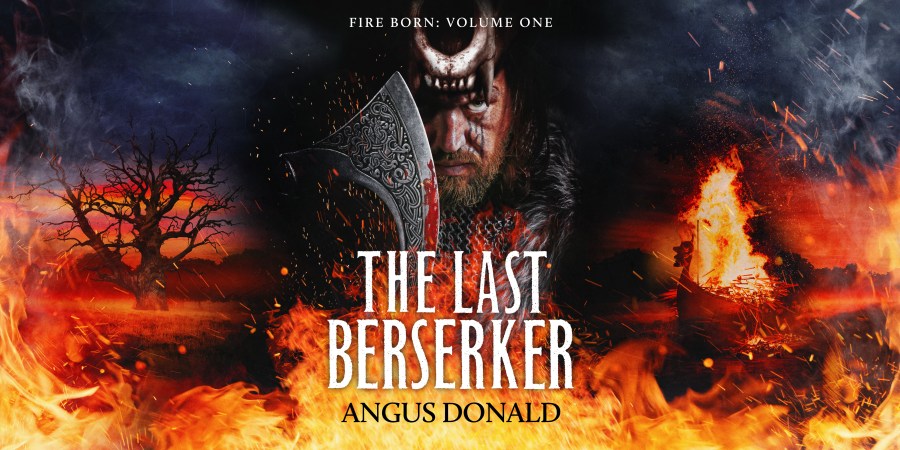The over-enthusiastic etymologist, #2: Berserk, Gay, Money
I’ve always loved words and as a schoolboy I wanted to become an etymologist. I had a collection of a few dozen words whose etymologies I thought I knew but which, over the years, I have discovered were mostly bogus. But the internet is a game-changer – all the world’s knowledge at your fingertips – and I’ve never lost my curiosity about words, their origins and their changing use. So what follows is an occasional blog, not just about etymology, but words in general. I hope you find it fun and informative.

Berserk
This word is close to my heart – and my work. Everyone knows what “berserk” means in English – to go violently crazy, to get dangerously angry – but when I was writing my first Fire Born novel, The Last Berserker, above, I discovered that quite a few people had no idea exactly what a berserker was. The words comes from the Old Norse word berserkr, which described a member of an elite class of Germanic warriors, who entered a killing frenzy during battle, and perhaps wore bear fur, as a distinguishing mark. Berserkr means “Bear Shirt” and the thick pelts of bears do make excellent armour. The descendants of the berserkers have been seen on TV recently – the Grenadier Guards at the Queen’s funeral. Wearing bearskins as a mark of an elite warrior is a tradition that has lasted for thousands of years. For more about this, read my previous blog on this site called Berserkers: Myths or Just Lost in the Mists of Time.
Gay
Gay, as we all know, now means homosexual. But its meaning has shifted considerably over the years. I had assumed that before about 1960 it simply meant cheerful and merry – a synonym for happy. But its meaning has been ambiguous for centuries. In Victorian times, it meant a prostitute. I was reading a brilliant book about the Victorian poor (Vagabonds by Oscar Jensen) the other day and came across a quote from a lascivious Victorian gentleman who sees a pretty girl and wonders if she is gay, meaning on the game. “Gay houses” were hetro brothels in the 19th century. The meaning of the word has changed a lot over time – and no doubt will again. Back in the 14th century, gay (from the French word, gai) meant showily dressed or sumptuous. And some of today’s teenagers call things “gay” as a mark of general opprobrium; gay for these kids means bad, inferior or undesirable, without any sexual connotation at all.

Money
Because it is so central to people’s lives, money has always had a lot of slang varieties. My Collins Thesaurus lists 38 synonyms including: tin, rhino, pelf, the needful, shekels, dibs, ackers and mazuma. And throughout history an awful lot of words have been used to describe it. My favourite is “chink” from the 17th century, which I discovered when writing Blood’s Game, a novel about an attempt to steal the Crown Jewels from the Tower of London in 1671. “Chink”, I would guess, comes from the sound coins make in your pocket. The First English Dictionary of Slang (1699) says a “baubee” is a halfpenny. A “rag” is a farthing. A “hog” is a shilling and “half a hog” is six pence. A “job” is a guinea (a bit more than a pound). “Breaking shins” is a particularly poignant 17th-century slang phrase for borrowing money.
My latest Fire Born novel The Loki Sword (Fire Born 3) is now available from Amazon as an eBook or paperback.
If you enjoyed this blog and would like to show your appreciation to a struggling writer, you can throw him some “chink” and buy him a much-needed pint of ale or cup of coffee at ko-fi.com/angusdonald
Comments (0)